Planting organic fruit trees can transform your garden into a lush, productive haven while promoting environmental health. Whether you’re a seasoned gardener or new to the craft, growing your own organic fruit trees offers countless benefits, from richer flavors to healthier trees. In this guide, we’ll explore everything you need to know to successfully plant and care for your organic fruit trees, ensuring bountiful harvests year after year. From choosing the right variety to mastering natural care techniques, this article provides a comprehensive roadmap for anyone eager to embrace organic gardening. By following these simple steps, you’ll be well on your way to enjoying fresh, pesticide-free fruits straight from your yard. Let’s dive into the essential tips and tricks for planting organic fruit trees and reaping the rewards of a thriving, eco-friendly garden.
Key Takeaways
– Epsom Salt Boosts Magnesium for Healthier Plants: Enhances nutrient absorption, supports strong roots, and improves fruit quality and yield.
– Adjusts Soil pH Naturally: Helps maintain optimal pH levels for fruit trees, promoting healthy growth.
– Fights Fungal Diseases: Protects against common pathogens like powdery mildew, ensuring robust tree health.
– Improves Fruit Flavor and Texture: Larger, more flavorful fruits with fewer pits, perfect for organic fruit trees.
– Supports Blooms and Yields: Essential for flower formation and fruit set, boosting crop production.
– Baking Soda as a Natural Fungicide: Safely combats fungi and insects while maintaining soil health and pH balance.
– Enhances Leaf Cleanliness: Removes residues and pests, promoting a clean growing environment.
– Promotes Stronger Roots and Growth: Improves soil conditions and protects against diseases for healthier trees.
– Assists Pollination: Supports flower health, indirectly boosting fruit production.
– Safe and Cost-Effective Solution: An eco-friendly alternative to chemical treatments for organic gardening.
– Magnesium-Rich Epsom Salt for Banana Trees: Prevents deficiencies, ensuring healthy leaves and growth.
The Best Month to Plant Fruit Trees
Planting fruit trees depends on several factors, including climate, region, and the type of tree. Generally, the best time to plant fruit trees is in the spring, specifically in months like March, April, or early May, when the ground has thawed and the risk of frost has passed.
However, the exact timing can vary:
- Spring (March-May): Ideal for most fruit trees, especially those suited for temperate climates. This allows the trees to establish roots before the heat of summer sets in.
- Summer (June-August): Not recommended for most fruit trees, as the extreme heat can stress young trees and inhibit growth.
- Fall (September-November): A good alternative for cooler climates or for trees that prefer milder weather, allowing them to settle in before winter.
- Winter (December-February): Some fruit trees, like citrus or tropical varieties, can be planted in winter, especially in warmer regions.
Key considerations for successful planting include:
- Soil Preparation: Ensure the soil is loose, well-draining, and rich in organic matter. Test your soil pH to determine what nutrients your trees need.
- Rootstock Selection: Choose the right rootstock for your climate and tree type. OldSeed.org provides detailed guides on selecting the best rootstocks for your needs.
- Watering: Young trees require consistent watering, especially during their first year. Mulching around the base of the tree helps retain moisture and regulate soil temperature.
- Avoid Overcrowding: Space trees properly to allow for adequate air circulation and light exposure, which is crucial for healthy growth.
By considering these factors and following best practices, you can successfully plant fruit trees at the optimal time for your location and variety. For more detailed guidance, visit OldSeed’s soil preparation guide and explore their resources on rootstock selection .
The Best Organic Fertilizer for Fruit Trees
When selecting the best organic fertilizer for fruit trees, it’s essential to consider factors like nutrient balance, ease of application, and environmental impact. Here’s a breakdown of top organic fertilizers tailored for fruit trees:
- Compost : Compost is a versatile and effective option, as it enhances soil structure and provides slow-release nutrients. Look for aged compost rich in organic matter to support healthy tree growth.
- Fish Emulsion : A liquid fertilizer derived from fish by-products, fish emulsion is high in micronutrients like zinc and vitamin B12. It’s excellent for boosting leaf health and overall tree vitality.
- Seaweed Extract : Seaweed extract is rich in amino acids and trace minerals, making it ideal for promoting root development and foliage growth. It’s particularly useful during periods of stress or heavy fruit production.
- Worm Castings : Worm castings are a concentrated source of nutrients, including nitrogen, magnesium, and phosphate. They’re great for boosting soil fertility and plant health.
- Bat Guano : Bat guano is a natural source of phosphorus and nitrogen, essential for strong root systems and abundant flowering. It’s a long-lasting fertilizer that provides sustained benefits.
For optimal results, apply these fertilizers at planting time and again during the growing season. Consider using a low-nitrogen formula to avoid excessive foliage growth, which can attract pests. Experiment with small amounts first to gauge your tree’s reaction and adjust accordingly.
Additionally, prepare a compost tea as a liquid feed for a nutrient-rich solution that your trees will appreciate. Regular feeding with organic fertilizers helps maintain healthy soil and promotes robust tree growth, leading to better yields and overall tree health.
How to Grow Fruit Trees Without Pesticides
Growing fruit trees organically can be a rewarding experience, allowing you to enjoy fresh, healthy fruits without relying on harmful chemicals. By adopting sustainable practices, you can protect your trees and promote biodiversity in your yard. Here’s a guide to growing fruit trees without pesticides:
Choosing the Right Fruit Trees
Not all fruit trees are created equal when it comes to pesticide resistance and ease of cultivation. Some varieties are naturally resistant to pests and diseases, making them ideal for organic gardens. Common options include:
- Apple Trees
- Pear Trees
- Cherry Trees
- Peach Trees
- Apricot Trees
- Plum Trees
- Fig Trees
- Citrus Trees (like oranges, lemons, and grapefruits)
- Berry Bushes (such as strawberries, raspberries, and blackberries)
Pruning and Maintenance
Regular pruning is essential for keeping your fruit trees healthy and productive. Prune branches in late winter or early spring to remove dead wood and encourage new growth. This also helps reduce the risk of pests and diseases by exposing problematic areas to sunlight and airflow.
Companion Planting
Planting companion crops around your fruit trees can deter pests and improve soil health. Flowers and herbs like marigolds, basil, and garlic can act as natural repellents. Companion planting also attracts beneficial insects that prey on pests, creating a balanced ecosystem in your garden.
Mulching
Apply a thick layer of organic mulch, such as wood chips or leaves, around the base of your fruit trees. Mulch helps retain moisture in the soil, reduces weed growth, and provides insulation during cold weather. It also acts as a barrier against soil-borne diseases and pests.
Natural Pest Control
Instead of reaching for chemical pesticides, try these natural alternatives:
- Diatomaceous Earth : A non-toxic powder that kills soft-bodied pests like aphids and slugs.
- Neem Oil : A natural insecticide derived from the neem tree, effective against various pests and diseases.
- Biological Controls : Introduce ladybugs, parasitic wasps, or predatory mites to control pest populations naturally.
- Physical Barriers : Use barriers like row covers or netting to protect your trees from birds and animals.
Soil Preparation and Watering
Healthy soil is the foundation of successful fruit tree growth. Prepare your soil by digging deeply and incorporating compost or manure to improve drainage and fertility. Water your trees regularly, especially during dry periods, but avoid overwatering to prevent root rot.
Monitoring and Maintenance
Inspect your trees frequently for signs of pests, diseases, or damage. Early detection allows you to take corrective actions before the situation becomes severe. Practice crop rotation and clean up fallen fruits to minimize the spread of pests and diseases.
Tips for Success
To maximize your chances of success, select disease-resistant varieties and plant them in full sun or partial shade depending on the species. Regularly monitor your trees and adjust your care routine based on their specific needs. With patience and dedication, you’ll enjoy a bountiful harvest of organic, pesticide-free fruits year after year.
For more tips and resources on sustainable gardening, visit Old Seed today!
What Does Epsom Salt Do for Fruit Trees?
Epsom salt, also known as magnesium sulfate, is a versatile compound with several benefits for fruit trees. Here’s a breakdown of its key functions:
- Nutrient Provision: Epsom salt supplies magnesium, a vital mineral for plant health. Magnesium supports healthy leaf growth, strong stems, and robust root systems, all of which contribute to productive fruit trees.
- Adjusting Soil pH: Epsom salt can help maintain the optimal pH level for fruit trees, typically between 6.0 and 7.0. By adding a small amount around the base of the tree, you can correct acidity or alkalinity, fostering a healthier environment for root development.
- Preventing Fungal Diseases: Its mild antifungal properties can help protect against common pathogens that affect fruit trees, reducing the risk of root rot and other infections.
- Improving Fruit Quality: Adequate magnesium intake can lead to larger, more flavorful fruits with fewer pits. This is particularly beneficial for varieties like apples and pears.
- Supporting Bloom and Yield: Magnesium plays a role in flower formation and fruit set. Regular applications of Epsom salt can enhance blooming and increase crop yields.
For optimal results, mix approximately 1-2 tablespoons of Epsom salt into the soil around the base of each fruit tree. Reapply in early spring to replenish magnesium levels depleted during winter.
Baking Soda Benefits for Fruit Trees
Baking soda offers several beneficial uses for fruit trees, supporting their health and productivity. Here’s an organized overview:
- Fungicide Properties: Baking soda effectively combats powdery mildew, a common fungal issue affecting fruits and leaves. Its antifungal qualities help protect plants from various fungal infections.
- Broad-Spectrum Fungicide: Beyond powdery mildew, baking soda can treat other fungal problems on fruit trees, promoting overall plant health and preventing disease spread.
- Insecticidal Effects: While primarily a fungicide, baking soda may have mild insecticidal properties, aiding in pest control by disrupting their habitats or reducing their feeding activity.
- Leaf Cleaning: Applying baking soda as a spray can help remove residues and pests from leaves, ensuring a cleaner growing environment.
- Soil Health: Used as a soil treatment, baking soda can adjust soil pH, fostering a more conducive environment for plant growth and nutrient absorption.
- Preventing Infections: Regular applications during flowering can reduce the risk of fungal infections, enhancing fruit production and tree vitality.
- Supporting Growth: By improving soil conditions and protecting against diseases, baking soda contributes to stronger roots and healthier trees, potentially increasing yields and fruit quality.
- Pollination Assistance: Healthier flowers due to baking soda treatments may support better pollination, indirectly boosting fruit production.
- Safety and Cost-Effectiveness: Safe for plants and the environment, baking soda is an eco-friendly alternative to chemical treatments, and its affordability makes it a practical choice for home gardeners.
For optimal results, apply baking soda as a spray every 14 days during the growing season, focusing on affected areas and ensuring thorough coverage. This natural approach supports your fruit trees’ health and promotes a thriving garden ecosystem.
Do Banana Trees Like Epsom Salt?
Epsom salt, a magnesium-rich compound, can be beneficial for banana trees when used appropriately. Magnesium is essential for plant health, aiding in nutrient absorption and preventing deficiencies that can cause yellowing leaves and stunted growth.
To use Epsom salt for banana trees:
- Mix 1 tablespoon of Epsom salt per gallon of water.
- Apply the solution directly to the base of the tree or mix it into the soil before watering.
- Repeat every 4-6 weeks during the growing season to maintain optimal magnesium levels.
However, always test a small area first to avoid harming the tree. Overuse can lead to soil salinity issues. Epsom salt should complement a well-rounded fertilizer regimen rather than replace it.
For best results, monitor your banana tree’s health and adjust applications based on growth and leaf condition. A balanced approach ensures healthy growth and robust fruit production.


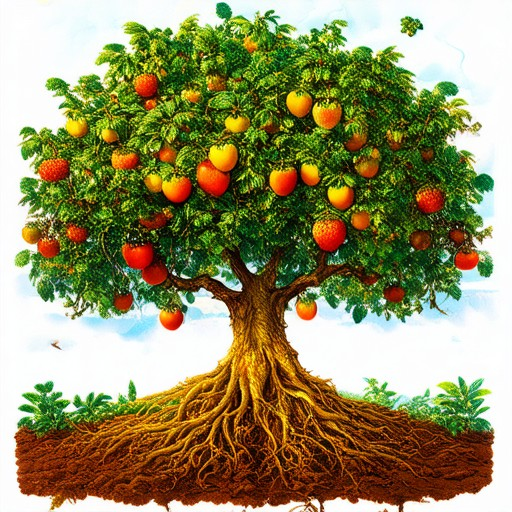
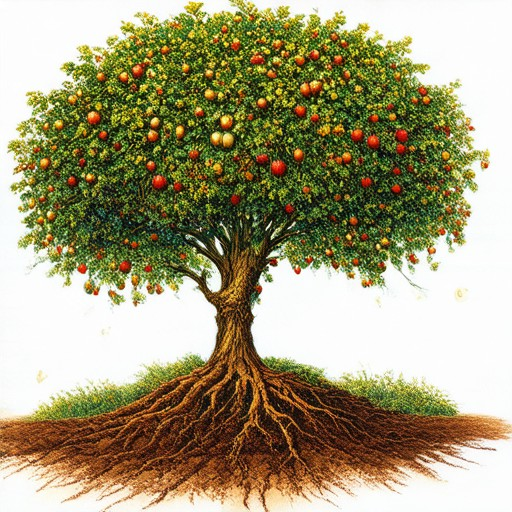

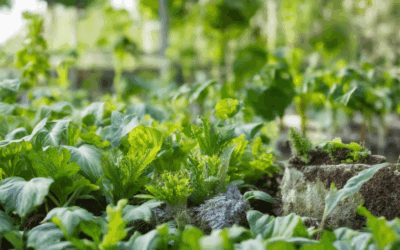
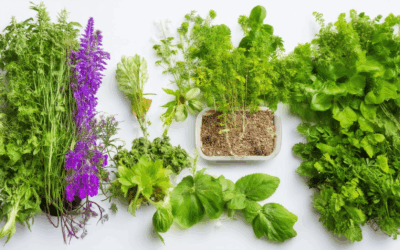
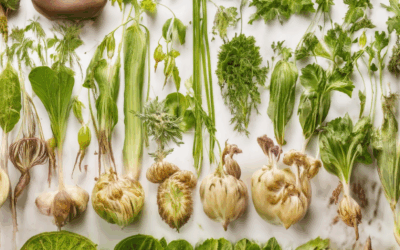
0 Comments